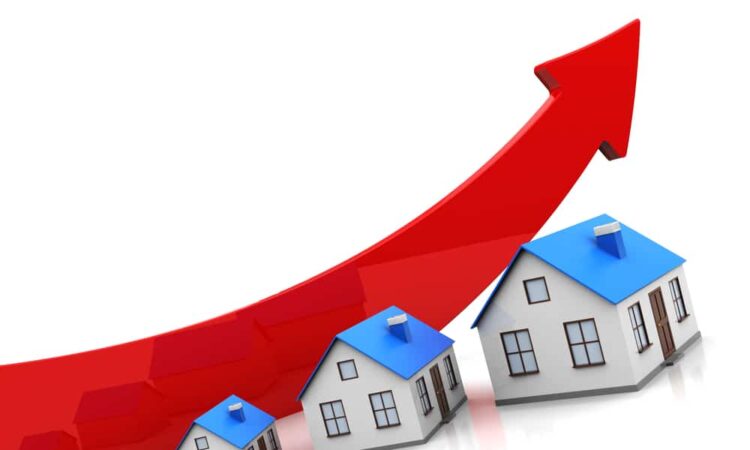
Average house prices in the UK rose by 1.2% from April to May, reaching an average of £285,201, official data showed.
Annually, average house prices in the UK were 2.2% higher than last year, as shown by the Office for National Statistics’ (ONS’) house price index.
Within England, house prices in London saw the biggest average change, with a 3.9% monthly jump to £523,376. However, the capital had the weakest annual growth at just 0.2%.
The West Midlands was the next region to see a significant yearly increase in the average house price, rising by 2.3% to £250,787. Compared to last year, average house prices were also 3% higher.
Yorkshire and the Humber recorded the largest annual growth in average house prices, with a 3.9% uptick to £209,055. Since April, this represented a 1.9% jump.
Overall, average house prices in England rose by 1.3% monthly and 2.2% year-on-year to £302,393.
Northern Ireland was the nation to record the biggest annual change in average house prices, with a 4% increase to £178,499. This was followed by Scotland, where house prices rose by 2.5% to an average of £191,435, and Wales, where there was a 2.4% uplift to £216,002.
A strong performance from the housing market
Ben Waugh, managing director of More2life, said: “The uptick in house prices speaks to a market that is gaining momentum and poised to grow even stronger as we progress through the second half of the year. Concerns that political change might dent the recovery have been put at ease, with the new Government marking its intentions to prioritise a robust property market from the outset. Healthy demand for housing and overall market confidence bodes well as we await the Bank of England’s decision on its central rate in early August.
“Homeowners looking to put their houses on the market will be encouraged by these raising figures and advisers are in an important position to provide expert guidance at this time as more buy and sell activity picks up.”
Richard Harrison, head of mortgages at Atom Bank, added: “The fact that the ONS has now reported three months of straight house price increases is a good indication of the growing confidence in the market. This data predates the calling of the general election, however, which may have had a temporary effect on buyer demand, and with it, house price movements.
“The general election inevitably brought some uncertainty to the market, but the fact that we had such a definitive result means that some sellers and buyers will feel more comfortable pushing on with plans. There may also be some encouragement from the new Government’s proposed Freedom to Buy permanent mortgage guarantee scheme, which is aimed at providing more options for buyers with small deposits. We have long been a champion of such buyers, focusing on delivering competitive rates for those with smaller deposits, but more choice would be welcome.
“Eyes will now turn to the Bank of England, and when it will look to start reducing bank base rate, as reduced rates will also serve to boost buyer confidence. With inflation continuing to move in the right direction, it’s simply a question of when, not if.”
Decline in flat prices
All types of property except for flats and maisonettes recorded an annual rise in average house prices in May.
This fell by 0.9% year-on-year to £231,025.
The average price of a semi-detached home rose by the most since last year to £278,793, representing a 3.9% increase. Meanwhile, the average price of a detached home rose 3.5% to £439,590 since last year.
Terraced homes were priced at an average of £234,048 in May, a 2% rise on the year before.
New-build house prices dip
On a monthly basis, the cost of a new-build property dropped by 1.2% to an average of £383,769. However, annually this was 13.1% higher than in 2023.
The price of an existing resold property was flat at £275,030 on a monthly basis, and there was a small 0.1% decline since last year.
First-time buyers paid an average of £238,284 for their homes in May, a 1% rise on April and a 1.8% increase on last year.
The average house price for a former homeowner was £332,133, which was 1.5% higher than the month before and 2.7% up on 2023.
Cash buyers paid slightly less for their homes in May, at an average of £270,398. This was 1.4% up month-on-month and 1.8% higher annually.
Those using a mortgage to buy a home paid an average of £297,069 in May, up 1.2% since the month before and 2.5% higher annually.
This article first appeared on our sister site, Mortgage Solutions, here.






